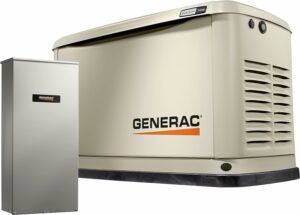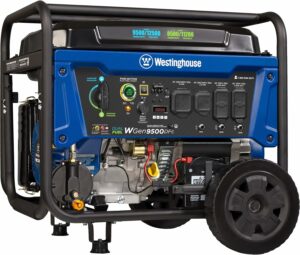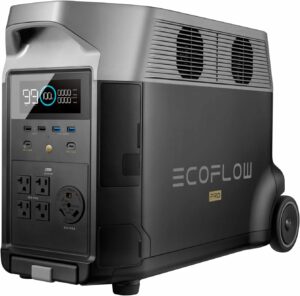How To Determine The Right KW Generator For Your Household Needs
Introduction
In our modern lives, electricity is the lifeblood that powers our homes, enabling us to carry out daily routines, stay connected, and enjoy the comfort of our cherished appliances.
However, when the power grid falters, whether due to storms, equipment failures, or other unforeseen events, we are reminded of how crucial it is to have a reliable backup source of power.
This is where generators step in as unsung heroes, providing a lifeline during those inconvenient and often challenging moments when the lights go out.
Provo Green Products embodies a beacon of trust in the realm of sustainable discoveries, offering choices that enhance your life and leave a positive mark on our planet.
Leveraging extensive expertise in manufacturing, construction, and various trades, we provide a solid foundation for sustainable living.
Our meticulous research process guarantees that our information about each product is precise and current, allowing you to make informed decisions.
Whether your interest lies in solar products, electric bikes, or other eco-friendly alternatives, our commitment to credibility ensures you have access to dependable insights, guiding your journey toward a more sustainable lifestyle.
Provo Green Products is your go-to destination for finding the right green products for your lifestyle.
Disclosure: As an Amazon Associate, we may earn from qualifying purchases. This does not affect the product pricing whatsoever.
Understanding Your Power Requirements
When it comes to selecting the right generator for your household, the first and most crucial step is to have a clear understanding of your power requirements.
This involves assessing your household’s electricity needs in detail:
- Assessing Your Household’s Electricity Needs:
- Start by creating a comprehensive list of all the electrical appliances and devices in your home. This should include essentials like refrigerators, lighting, heating, and medical equipment, as well as non-essential items like TVs and gaming consoles.
- For each item on your list, note down its wattage or amperage rating. You can usually find this information on a label or in the appliance’s manual. If not, you can use a power meter to measure the actual power consumption.
- Categorize the appliances into critical and non-critical loads. Critical loads are those you cannot do without during a power outage, while non-critical loads are less essential and can be managed with a smaller generator or not at all.
- Differentiating Between Essential and Non-Essential Appliances:
- It’s important to prioritize your power needs during an outage. Essential appliances, such as medical equipment or heating in cold climates, should take precedence. Make a list of these critical appliances, as they will determine the minimum generator capacity required.
- Non-essential appliances, like entertainment systems or extra lighting, can be considered as secondary priorities. You can decide whether you want to power them during an outage or not, depending on the available generator capacity.
- Estimating Your Power Consumption During Outages:
- Consider the duration of power outages in your area. Are they typically short and infrequent, or can they last for an extended period? This will impact the size of the generator you need.
- Calculate the total power consumption for your essential appliances during an outage. To do this, add up the wattages of all critical loads that need to run simultaneously.
- Don’t forget to account for the starting wattage or surge power of some appliances, which can be significantly higher than their running wattage. Generators need to handle these surges without overloading.
By understanding your power requirements through a detailed assessment of your household’s electrical needs, you can determine the minimum kW capacity your generator should have.
This step is fundamental to ensuring that your generator can effectively meet your needs during power outages while avoiding overloading or underutilizing your backup power source.
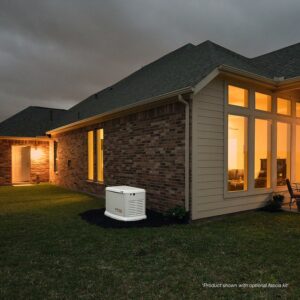
Sizing Matters: Calculating Your Generator’s Capacity
Choosing the right generator size is crucial to ensure it can effectively meet your household’s power needs during outages.
The process of sizing your generator involves a series of calculations and considerations:
- Exploring the Importance of Proper Generator Sizing:
- Generator sizing is not a one-size-fits-all solution. Having a generator that’s too small for your needs will lead to power overloads and potential damage to appliances, while an oversized generator can be inefficient and costly to run.
- Proper sizing ensures that your generator can comfortably handle your essential appliances and devices, providing a reliable power source during outages.
- Methods to Calculate the Required kW Capacity:
- The most common method for calculating your generator’s capacity is to perform a load analysis. This involves summing the wattage requirements of all the critical loads you identified in the previous section, “Understanding Your Power Requirements.”
- Consider the starting wattage, or surge power, for any appliances with motors, such as refrigerators and air conditioners. This is often higher than their running wattage and needs to be factored into your calculations.
- Once you’ve determined the total wattage needed, convert it to kilowatts (kW) by dividing by 1,000. For example, if your critical loads require 4,500 watts, you’d need a generator with a minimum capacity of 4.5 kW.
- Factoring in Surge Power Demands:
- Surge power is a temporary spike in electrical demand when appliances with motors start up. It’s essential to account for these surges in your generator’s capacity calculations to avoid overloading and potential damage.
- When assessing surge power, consider the highest-rated surge among your appliances and add it to the total load. For example, if your critical loads require 4.5 kW and your largest surge is 1.5 kW, you’d need a generator with a capacity of at least 6 kW.
- Keep in mind that generators are typically rated for both running power (continuous power output) and surge power (temporary power output). Ensure that your generator’s surge capacity is sufficient to handle the highest surge demand in your household.
By following these steps to calculate the required kW capacity of your generator, you can confidently select a generator size that matches your household’s needs.
This ensures that your generator operates efficiently and reliably during power outages, providing you with the peace of mind and convenience you desire.
Types of Home Generators: Which One Is Right for You?
Selecting the correct type of generator for your home is a crucial decision that depends on your specific needs, budget, and other considerations.
In this section, we will explore the main types of home generators and help you determine which one is the best fit for your situation.
- Overview of Standby, Portable, and Inverter Generators:
- Standby Generators: These generators are permanently installed and provide seamless, automatic power backup during outages. They are usually connected to your home’s electrical system and run on natural gas or propane. Standby generators are ideal for homeowners seeking uninterrupted power for essential loads.
- Portable Generators: Portable generators are versatile and can be moved to different locations. They run on gasoline, propane, or diesel and are started manually. They are cost-effective but require manual setup and connection during power outages. Portable generators are suitable for short-term backup power needs.
- Inverter Generators: Inverter generators are a compact and quiet option, known for their clean and stable power output. They are highly fuel-efficient and often used for camping or as backup power for sensitive electronics. Inverter generators are an excellent choice if you need a lightweight and quiet power source.
- Pros and Cons of Each Generator Type:
- Standby Generators:
- Pros: Automatic operation, seamless transition, high capacity, long-lasting, runs on natural gas or propane.
- Cons: Higher initial cost, professional installation required, ongoing maintenance.
- Portable Generators:
- Pros: Cost-effective, versatile, easy to transport, simple setup, a wide range of sizes available.
- Cons: Manual start, limited capacity, fuel storage and maintenance required.
- Inverter Generators:
- Pros: Clean power output, fuel-efficient, lightweight and portable, quiet operation.
- Cons: Limited capacity, suitable for small to medium loads, manual start.
- Matching Generator Types to Specific Household Needs:
- Consider your specific power requirements, including the number and type of essential appliances you need to run during outages.
- Assess the duration and frequency of power outages in your area. If they are frequent or prolonged, a standby generator may be the best choice.
- Take into account your budget, as standby generators tend to have higher upfront costs, including installation.
- Think about the space available for generator placement and whether you need a portable option.
Ultimately, the right generator type for you will depend on your unique circumstances.
By weighing the pros and cons and considering your household’s specific needs, you can make an informed decision on whether a standby, portable, or inverter generator is the best fit for your backup power requirements.
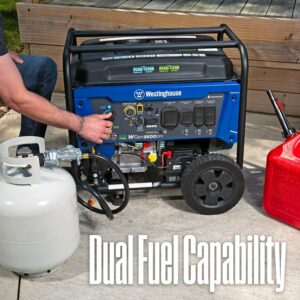
Fuel Sources and Fuel Efficiency
The choice of fuel source for your generator plays a significant role in its performance and long-term costs.
Understanding the various fuel options and their efficiency is essential for making an informed decision.
- Comparing Different Generator Fuel Options:
- Generators can run on various fuel sources, including gasoline, propane, natural gas, diesel, and even solar power. Each fuel type has its advantages and disadvantages.
- Gasoline: Gasoline-powered generators are common and widely available. They are easy to refuel but may not be the most efficient option. Gasoline has a limited shelf life and can be less economical for longer outages.
- Propane: Propane generators are cleaner-burning and often have longer shelf lives for the fuel. Propane is readily available and can be stored in tanks on your property.
- Natural Gas: If your home has access to a natural gas line, a natural gas generator can provide a continuous power supply without the need to refuel.
- Diesel: Diesel generators are known for their durability and fuel efficiency. They are suitable for extended outages but require proper maintenance.
- Solar Power: Solar generators use the sun’s energy to charge batteries, making them an eco-friendly and quiet option. However, they may have limitations in terms of capacity and reliability, especially during cloudy days or at night.
- Assessing Fuel Availability and Storage Considerations:
- Consider the availability of your chosen fuel source in your area. Some fuels, like gasoline, are widely available, while others, like natural gas, depend on infrastructure.
- Think about fuel storage for options like propane or diesel. You may need to invest in tanks or storage solutions to ensure a constant fuel supply.
- Determine the average consumption of your generator and calculate how much fuel you’d need for different outage scenarios.
- Tips for Maximizing Fuel Efficiency During Extended Outages:
- Proper maintenance is essential to ensure your generator runs efficiently. Regularly service your generator to keep it in optimal condition.
- Consider investing in a fuel-efficient generator model. Some generators are designed to provide more power for the fuel consumed.
- Implement load management strategies during outages. Prioritize essential loads and minimize the use of non-essential appliances to conserve fuel.
- Store fuel safely and follow local regulations and guidelines for fuel storage.
By understanding the various fuel options, their availability, and the importance of fuel efficiency, you can make a well-informed decision when selecting a generator for your household.
The right fuel source and efficient operation will not only provide reliable backup power but also help manage long-term operating costs.
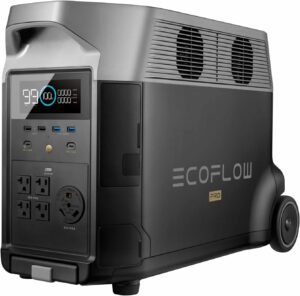
Budget and Maintenance Considerations
Choosing the right generator for your household involves more than just the initial purchase cost.
Understanding your budget and long-term maintenance requirements is crucial to make a wise investment.
- Setting a Budget for Your Generator Purchase:
- Begin by establishing a clear budget for your generator. This budget should encompass the cost of the generator itself, installation (if necessary), and any additional components like transfer switches and fuel storage.
- Research the prices of different generator types and models to ensure your budget aligns with your preferences. Keep in mind that standby generators often have higher upfront costs compared to portable or inverter options.
- Consider potential financing options, discounts, or incentives that may be available in your region, such as rebates for choosing energy-efficient models.
- Ongoing Maintenance and Servicing Requirements:
- Generators, like any mechanical equipment, require regular maintenance to ensure optimal performance and longevity.
- Plan for maintenance costs in your budget. This can include the cost of professional servicing, oil and filter changes, and any necessary repairs.
- Research and understand the maintenance schedule for your specific generator model. Some generators require more frequent maintenance than others.
- Factor in the cost of fuel, as well as any fuel storage and delivery fees, especially if you choose a fuel source like propane or diesel.
- Long-Term Cost Considerations for Generator Ownership:
- Consider the overall cost of generator ownership over time. While a less expensive generator may be tempting, it could end up costing more in terms of fuel consumption and maintenance.
- Think about the duration and frequency of power outages in your area. A generator with higher upfront costs but lower long-term operating expenses might be a better investment if you experience frequent or extended outages.
- Evaluate the warranty and support services provided by the manufacturer. A longer and more comprehensive warranty can save you money on repairs and replacement parts.
- Be aware of the potential need for spare parts or accessories, such as replacement batteries or filters, and factor these into your budget.
By setting a realistic budget for your generator purchase and understanding the ongoing maintenance requirements and long-term operating costs, you can make an informed decision that not only meets your backup power needs but also aligns with your financial considerations.
This approach ensures that your generator remains a reliable and cost-effective solution for your household.
Conclusion
In the realm of household power backup, the right KW generator is your guardian against the uncertainty of outages.
Through a thoughtful journey that begins with understanding your unique power requirements and leads to selecting the appropriate generator type, fuel source, and considering long-term maintenance and budget aspects, you have acquired the knowledge to make a well-informed decision.
With the ability to match your generator to the specific needs of your household, you can ensure that essential lights remain on, appliances function, and the comforts of home are maintained even in the darkest of times.
Stay in Touch!
I’am a dedicated entrepreneur with many years of experience and an integrity-driven individual who is highly motivated to succeed. Leveraging extensive expertise in manufacturing, construction, and various trades, we can provide a solid foundation for sustainable living. Our meticulous research process guarantees that our information about each product is precise and current, allowing you to make informed decisions. A deep understanding of business operations empowers me to consistently implement improvements that result in ongoing success. Visit site.

